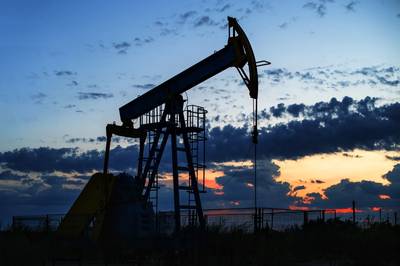U.S. energy firms added oil rigs for a 16th week in a row, extending a drilling recovery into a 12th month even as the pace of those additions has slowed in recent weeks as crude prices have held below $50 a barrel.
Drillers added six oil rigs in the week to May 5, bringing the total count up to 703, the most since April 2015, energy services
firm Baker Hughes Inc said on Friday.
While that is more than double the same week a year ago when there were only 328 active oil rigs, the pace of those additions has declined over the past four weeks to the lowest since the week to March 10.
U.S. crude futures were trading around $46 a barrel after falling to a five-month low this week, erasing all gains since the Organization of the Petroleum Exporting Countries (OPEC) agreed to cut output on Nov. 30. That puts the contract on track for a third week of declines, which would be its longest losing streak since November.
Despite recent price declines, analysts continued to project U.S. energy firms would boost spending on drilling and pump more oil and natural gas from shale fields in coming years with energy prices expected to climb in future months.
Futures were fetching around $47 a barrel for the balance of 2017 and about $48 for calendar 2018.
Oil and gas producer Apache Corp this week raised its estimate for production from North America due to forecasts for higher crude prices and lowered its cost forecast as technology improvements will help it pump more for less.
Separately, Magellan Midstream executives said the company was evaluating a new pipeline to transport crude and condensate from the Permian Basin to Corpus Christi in Texas. The Permian, which accounts for about a quarter of the nation's crude output, is the biggest and fastest growing shale oil basin in the United States.
U.S. crude output averaged 9.3 million barrels per day in the week ended April 28, its highest since August 2015, according to federal energy data.
Analysts at Simmons & Co, energy specialists at U.S. investment bank
Piper Jaffray (PJR.SG), this week forecast the total oil and gas rig count would average 855 in 2017, 1,056 in 2018 and 1,176 in 2019. Most wells produce both oil and gas.
That compares with an average of 775 so far in 2017, 509 in 2016 and 978 in 2015, according to Baker Hughes data.
Analysts at U.S. financial services firm Cowen & Co said in a note this week that its capital expenditure tracking showed 59 exploration and production (E&P) companies planned to increase spending by an average of 50 percent in 2017 over 2016.
That expected spending increase in 2017 followed an estimated 48 percent decline in 2016 and a 34 percent decline in 2015, Cowen said according to the 64 E&P companies it tracks.
(Reporting by Scott DiSavino; Editing by Marguerita Choy)



